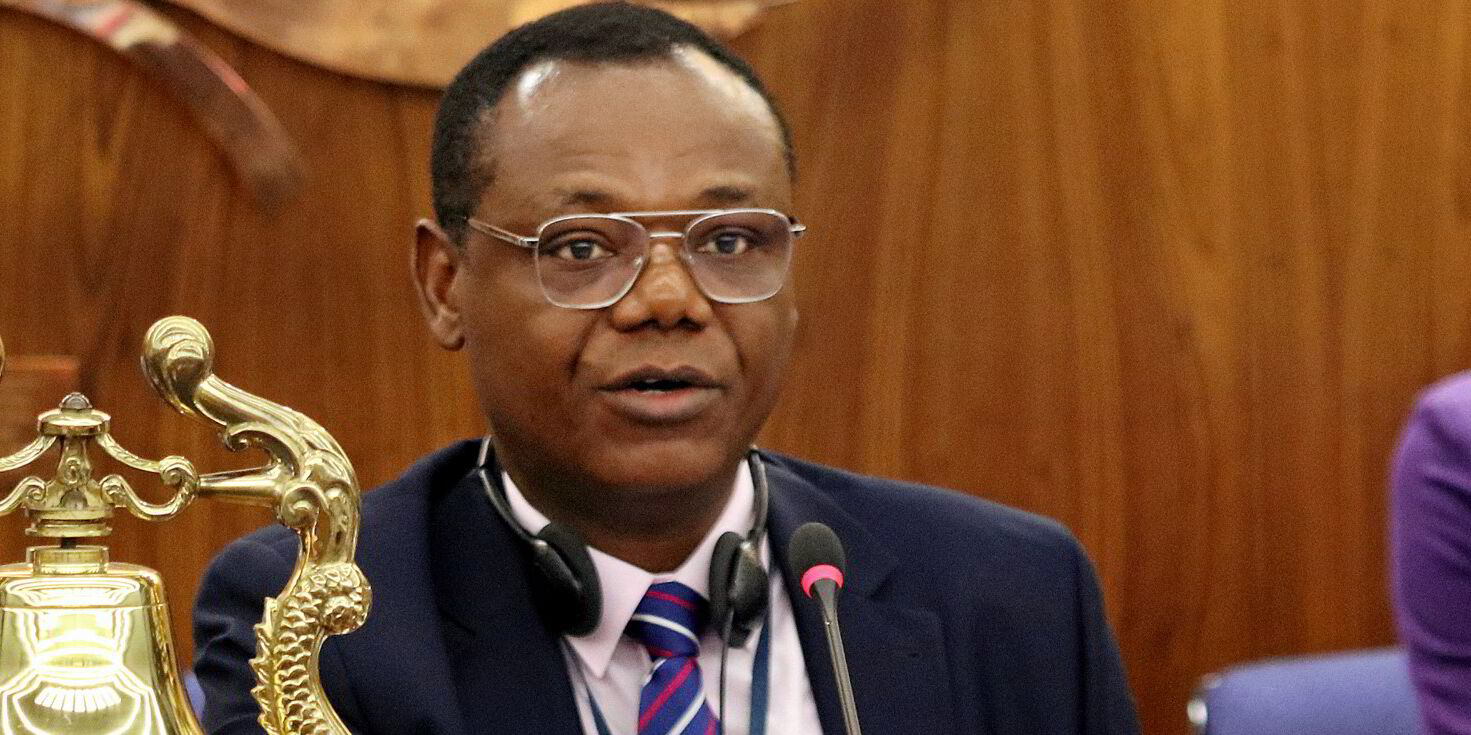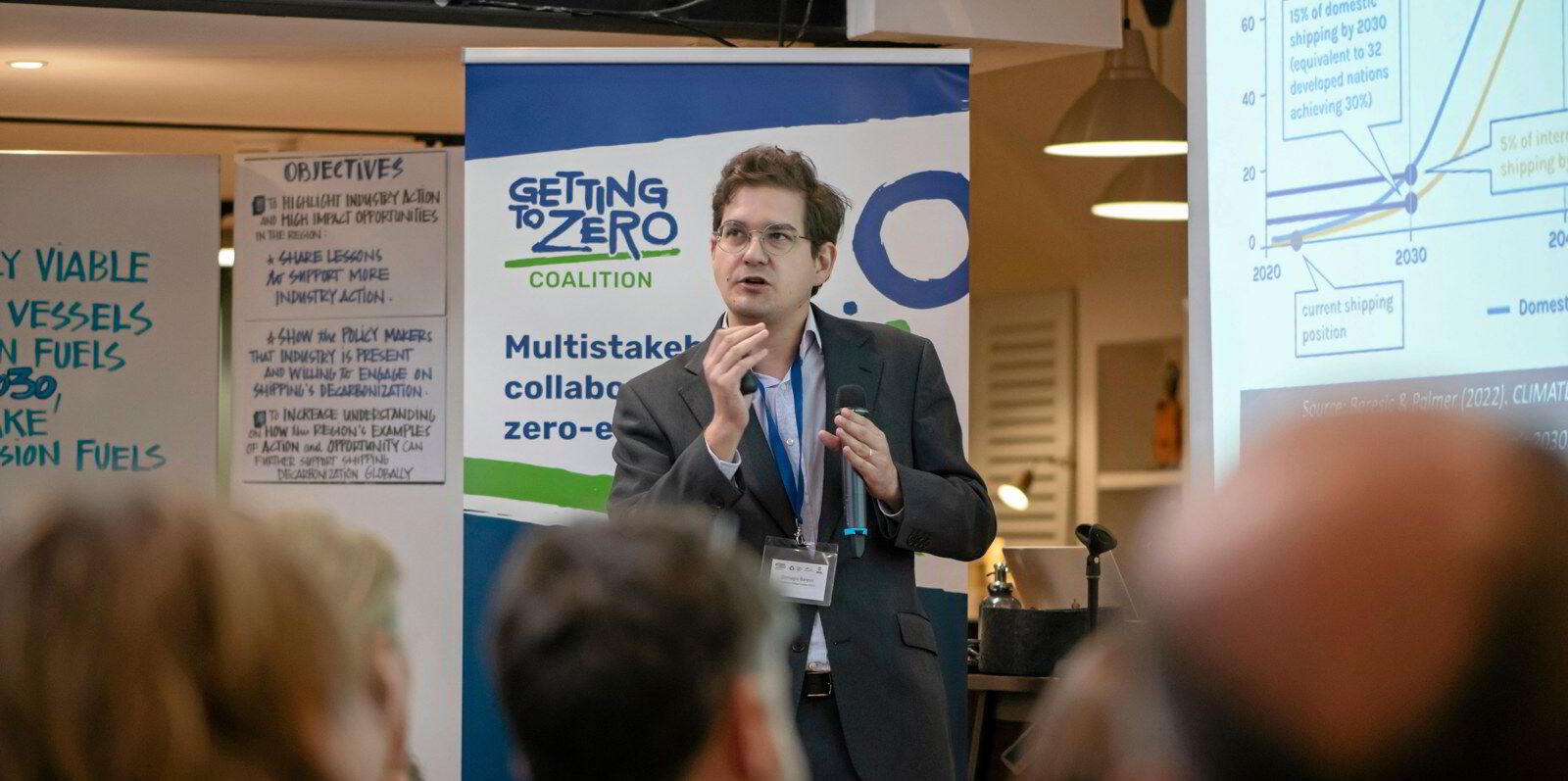Clear signs of progress emerged from a week-long meeting at the International Maritime Organization, which was seen as a key staging post in setting new carbon rules for shipping.
Steps have been taken to unravel the complexities of proposals to structure an economic measure to force decarbonisation while raising funds for mitigation and research.
This week marks the start of a six-month push of closed-door talks that will culminate in April in another meeting of the Marine Environment Protection Committee (MEPC).
The final decision will determine how much greenhouse gas-emitting ships will be forced to pay to pollute and how that payment will be collected and used.
So what happened this week?
International Chamber of Shipping secretary general Guy Platten said: “A real positive is that all the options are on the table. Nothing has been ruled out.
“What other industry is this close to having global regulation on decarbonising? I can’t think of any, and you have the industry right behind something, along with realisation from member states as well.
“That is the positive I will take. Sometimes a deadline is a good thing.”
Three groups of countries have agreed to liaise to see if their proposals for a CO2 levy can be combined into a single proposition.
But this would still be pitted against a proposed system known as a flexibility mechanism that would penalise under-compliance and reward over-compliance.
Meanwhile, India has drawn on the spirit of Mahatma Gandhi to suggest a compromise exists between those two basic groups of economic proposals.
Such words did not stop MEPC chairman Harry Conway from quipping at one point earlier in the week that the working group settling the market-based measure should be known as the Wrestling Working Group instead of the GHG (greenhouse gas) working group.
Here’s what you need to know about the levy
Forty countries are trying to combine elements of their three proposals on the development of a fee, levy or feebate for ships’ emissions, alongside a greenhouse gas fuel standard. This group includes the International Chamber of Shipping.
This proposal also incorporates elements of how the funds raised — which could be in the multiple billions of dollars annually — can be used in a fair and equitable way.
In other words, how can they make sure the least developed countries and the small island developing states, two sets of nations specially singled out by the United Nations system, are not negatively affected?
So what about the other proposal?
Another set of nations are largely promoting the flexibility mechanism, which rewards or penalises ships based on benchmarks for the fuel or clean energy they use.
Each vessel would have a tightening benchmark, likely to be measured by carbon per the amount of energy used.
The flexibility mechanism would create units that can be bought or sold depending on whether a ship falls short of or exceeds the emissions levels set in a fuels standard.
Vessels that do not meet the benchmark emissions level would have to buy remedial or deficit units. Ships using clean fuels or technologies that exceed the standard would receive compliance units that they can sell to the under-performers that have remedial units.
This creates a market that the measure’s supporters say is enough to push shipping’s transition. Others do not agree.
In short, the discussion now comes down to whether the economic or market-based measure, which is one of the IMO’s mid and long-term regulations to decarbonise shipping, will take one of these forms:
- a levy-like flat fee on emissions or fuel used, which could be coupled with a fuel standard that limits greenhouse gas emissions;
- or a fuel standard without the flat fee, but with the ability to sell and buy emissions.
There could also be a middle ground that combines the proposals, as India suggests.
There will be a series of closed-door meetings at the IMO, in addition to written correspondence, in the coming six months so that a final decision can be found by the April meeting of the MEPC.
In his closing of this week’s MEPC meeting, IMO secretary general Arsenio Dominguez said he remained confident in a decision being made on a technical and economic measure by April, and a final set of rules settled in a year’s time.
He also threatened, probably jokingly, to close and lock the doors to the IMO committee rooms until a decision is reached.




